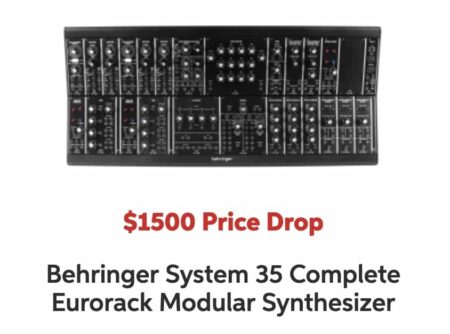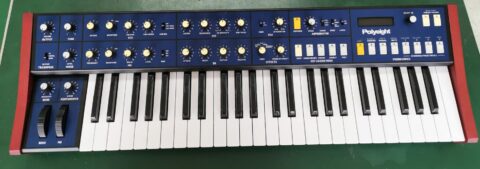Behringer drops Synth Prices up to 60%, citing Better Semiconductor Availability and Costs
Behringer today announced that they are dropping prices on many of their synths, with price reductions of up to 60%.
The company says it’s responding to improvements to the global supply chain issues that, over the last three years, have driven a production slowdown and price increases across the industry.
They note:
“As semiconductors become more available and prices come down, we’re able to ramp up production. In line with our promise to share our savings with you, we’re really excited to lower our pricing by up to 60%.”

Many of the price drops are small, like a $10 price cut on the $149 Brains module. But some of the price reductions are substantial, including:
- Behringer System 55 – $1400 price cut to $1,599
- Behringer System 35 – $1500 price cut to $999
- Behringer System 15 – $900 price cut to $799
- Behringer Poly D – $210 price cut to $599
- Behringer DeepMind 12 – $130 price cut to $799
- Behringer 2600 – $200 price cut to $499
- Behringer MonoPoly – $210 price cut to $599
- Behringer Wasp – $80 price cut to $149
- Behringer Cat – $150 price cut to $199
- Behringer TD-3 – $30 price cut to $129
In these instances, the price cuts are big enough that they will significantly disrupt the market for used Behringer synths. For example, every used Poly D on Reverb is currently priced substantially higher than the price to buy it new:

Behringer says that prices should be updated at their ‘Superpartner’ websites, including Amazon and others.
What do you think about Behringer’s price cuts? Share your thoughts in the comments!





